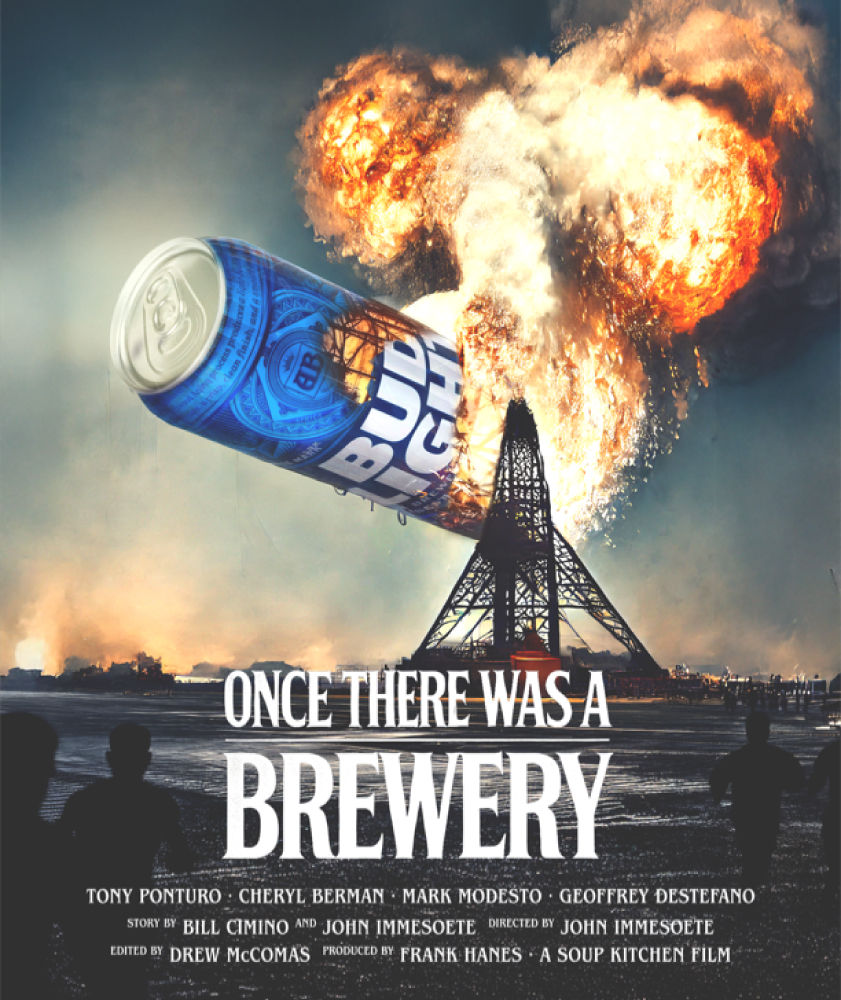
BIG BEER GOES BOOM
How bud light lost the culture war
Soup Kitchen Films Presents
Once There Was a Brewery
The Story of a Brand That Forgot
Who Was Buying the Beer.
In early 2023, Bud Light launched a campaign that set off one of the most visible consumer backlashes in recent memory. The move came after years of corporate ownership changes and internal shifts in brand leadership, each pushing to modernize the beer’s image. But one gesture, aimed at signaling new cultural values, misread the brand’s core audience and triggered a wave of overwhelming public rejection.
Once There Was a Brewery follows the chain of choices that led to the collapse. Industry insiders, agency veterans, and beverage experts explain what they saw from inside the process. Their accounts reveal how a brand that had built trust over a century unraveled in a single year, with lessons that reach far beyond beer.

Who Will Love This Film?
Once There Was a Brewery is for anyone who remembers the Bud Light story and wants to see how it really played out behind the headlines.
If you care about pop culture, if you work in marketing, or if you simply like seeing how big decisions go wrong, you’ll find something here. It is also for the curious onlookers, the skeptics, the “I told you so” crowd, and the people who enjoy pointing out when the emperor has no clothes.
Whether you drink Bud Light or never touched a can, this film pulls back the curtain on a brand collapse that millions watched unfold in real time.
A Note from the Director
Directing this film, I knew there was only one way to tell this story — through the eyes and commentary of the micro- and macro-media that created it. Bud Light was a pop culture phenomenon, created by marketers and advertisers who knew “making friends was their business” was not just a business mantra but a creative North Star.
The obtuseness of the new owners and new management was best left by “giving them enough rope to hang themselves.” Let them speak their minds, show their work, show how the public reacted. There was no need to create a judgmental or false narrative. The public, as usual, conveyed the truth.
- John Immesoete


